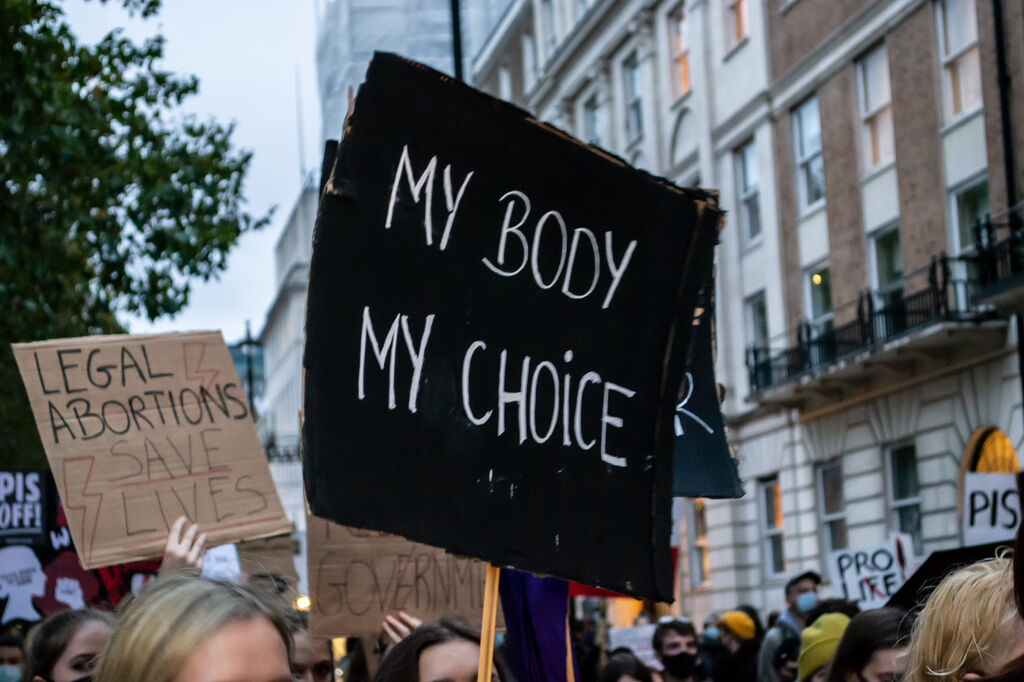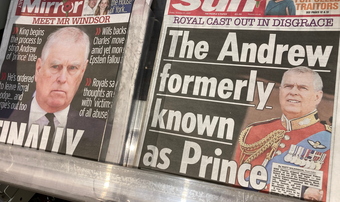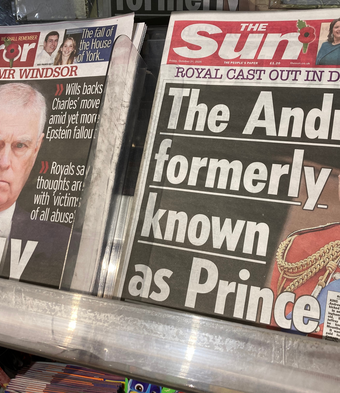Understanding the "pro-choice" movement

Disclaimer: This article covers sensitive themes like abortion and assisted suicide.
As the saying goes, you wait ages for a bus, and then two come along at once.
It feels rare to have one big story on life-issues, let alone two. But at this particular moment, both the beginning of life and the end of life are hot topics within Westminster.
In the Commons, pro-choice campaigners are trying to hijack the Government’s Criminal Justice Bill (which is not a bill about abortion) by putting forward an amendment to remove abortion from the criminal justice system for women (called decriminalisation). This would, in effect, mean that any woman who has an abortion after the cut-off of 24 weeks (which would remain in place) cannot be prosecuted, removing legal safeguards for babies in the womb. The amendment has some high-profile backers, including, as seems probable, the Health Secretary Victoria Atkins and Caroline Nokes, the chairman of the Women and Equalities Committee. If this is an amendment you are fearful of, you can write to your MP via our website.
Under the same Bill, pro-life MPs have put forward a modest amendment proposing that the 24-week legal time limit is lowered to 22 weeks, which would represent the first lowering of the time limit since 1990. This amendment would take note of the advances in medical science in recent years, with 4 in 10 babies born at 23 weeks now surviving (double what it was a decade ago), and the British Association of Perinatal Medicine now recognising that 22 weeks is the point of viability outside of the womb. If you would like to write to your MP to support the amendment, you can contact them here.
End-of-life care has also been much in the news in recent weeks. Assisted Suicide - or Assisted Dying, as campaigners call it, as a euphemism - has been the subject of a much-publicised campaign from Dame Esther Rantzen, and this week the Commons Health and Social Care Committee published the results of their enquiry around the issue. The Committee did not even recommend having another Parliamentary Debate on the subject, let alone changing the law, and recognised difficulties with safeguards and problems in other countries around the world where Assisted Suicide has been introduced.
(Incidentally, the spin within certain sections of the media on the report might have led one to think it was an encouraging report for Assisted Suicide advocates; in reality, it is completely the opposite. A truer, more realistic verdict came from Esther Rantzen herself, who said she was “disappointed”, and “This report does not help very much for those of us who desperately want the current law to change for the sake of our own families, and the many others in our situation”.)
I suspect that for many Christians, we already know what we believe when it comes to life issues. We know that life - as is everything else - is a gift given by our gracious God; we know that our bodies are not, ultimately, our own, and that what we do with them matters; we know that everyone, no matter whether they be big or small, male or female, physically disabled or with a learning disability or non-disabled, is made in the image of God, and is of innate and infinite dignity and value, simply by being human.
“God created mankind in his own image, in the image of God he created them; male and female he created them.”
Many of us will already be familiar with the Biblical arguments against abortion in the womb; or against lives being brought short before their natural end by lethal medical drugs through Assisted Suicide.
We would be able to open our Bibles at Psalm 139, at how God “knits us together in our mother’s womb” or we would flick to Luke Chapter 1, to when the pregnant Mary and Elizabeth meet, and the way in which John the Baptist leaps in his mother’s womb at the prospect of being in the same room as the pre-born baby Jesus. We would ourselves recognise that “all the days ordained for me were written in your book before any of them came to be.”
“The Lord brings death and makes alive; he brings down to the grave and raises up.”
At CARE, we not only believe these things, we long to live in a country which recognises them too. But in an increasingly secular world, while these things might make sense to us…they do not tend to make sense to others.
For why would someone who is not a Christian follow the rules of (or live in the worldview determined by) a God who they do not believe in? If we are to have any impact within the public square, we need to understand those who take a different perspective to us, and to understand their worldview, not just our own.
We need to think about how we might be able to persuade, not just talk at, those with whom we disagree.
Abortion was only legalised in 1967; and now we are talking about complete decriminalisation. What has led to such a change in mindset in only two generations?
There is an important distinction to be made at this point, particularly in the area of abortion, between the real-world circumstances of women who have an abortion, and between the philosophies of those who advocate for a pro-choice ethic.
The reasons why women might choose to have an abortion are many, and are often complex: some might feel pressured, whether by people or by circumstances; others agonise over their decision, and for some, it becomes a source of real pain and regret.
As Christians, we want to draw close to all who feel broken or who are suffering, with compassion and without judgement, not because our actions do not matter, but precisely because they do: because we recognise that we ourselves are broken people too, who are in need of the healing and the forgiveness of a saviour.
Instead, in the below, I am thinking more broadly about the pro-choice ethic. For at the heart of the pro-choice movements - whether it be in the areas of abortion or assisted suicide - is individualism; or as Carl Trueman would put it, the ‘Triumph of the Modern Self’.
Individualism is a relatively new phenomenon sociologically. It foregrounds the importance of oneself: in essence, you are allowed to live for yourself, rather than for others, as long as no one gets hurt. It values independence and self-reliance over community: what matters in life is what makes you happy.
Tim Keller explained it thus:
“Identity is not realized, as in traditional societies, by sublimating our individual desires for the good of our family and people. Instead, we become ourselves only by asserting our individual desires against society, by expressing our feelings and fulfilling our dreams regardless of what anyone says.”
It is a message which lies at the heart of much of the entertainment sector, whether in book, film or song. Think, for instance of the anthem at the centre of the most popular children’s film for a generation, ‘Let it go’ from Frozen.
“It’s time to see what I can do To test the limits and break through No right, no wrong, no rules for me I’m free!”
It is, ultimately, the philosophical reasoning behind many of the societal changes in recent decades, whether it be the Sexual Revolution, the redefinition of marriage and relationships away from the traditional family structures of the past, or the recent rise in transgender ideology.
The slogan goes: “My body, my choice.” Why did Esther Rantzen say she was so frustrated at the findings of the Health and Social Care Committee: “If they had said 'we urgently need a Parliamentary debate and a free vote', you know, that could perhaps have fitted into my own timescale, but it doesn't.”
This is not to detract from the heart-rending circumstances in which people can find themselves. Many have been shaped by their own experiences of watching loved ones suffer. Of course, people are understandably afraid of getting old, of suffering pain, or of feeling like they are losing their dignity. But their choices do not exist in a vacuum.
Individualism is - ironically - a post-Christian invention. It was the Christian ethic that every individual is made in the image of God, and possesses innate worth and dignity, that lies behind the idea of any form of universal human rights (as opposed to, for instance, the imbalance which lay at the centre of patriarchy, and other forms of oppression).
The historian Tom Holland writes:
“Both sides in the abortion debate are motivated by ‘religious considerations’! Those who are argue for the right to choose are also drawing on a deeply rooted Christian supposition: that every woman's body is her own & to be respected as such by every man.”
Having moved away from a Christian worldview, most pro-choice advocates declare that abortion is a 'right', and that is a simple healthcare procedure; the baby growing inside the womb is just an addendum to the mother's body (as opposed to a separate person), which can be removed without consequences (a bit like a mole growing on your skin).
In this worldview, there is only person, one body, one set of rights to consider. The rights of the unborn - on this view - do not exist.
One feminist writer put it as follows:
“I don't often engage in debates over abortion rights, for the same reason I don't sit down to share a meal at any table where I am on the menu. My body is not a theory or a talking point."
For Christians, the idea of loving oneself and living for oneself above all others is likely to feel highly jarring. After all, it was this impulse - to make themselves like God, determining good and evil for themselves - which lay behind Adam and Eve eating the fruit in Genesis 3.
When asked what the most important commandment was, Jesus said this:
“Love the Lord your God with all your heart and with all your soul and with all your mind and with all your strength.’ The second is this: ‘Love your neighbor as yourself.’ There is no commandment greater than these.”
Individualism does not simply mean that people have walked away from loving and serving God. It also means that they have walked away from loving serving their neighbour.
For in our individualistic world, the argument essentially goes like this: “Don’t want an assisted suicide? Then don’t have one.” Or “Don’t impose what you want to do on me.”
The theologian Nancy Pearcey responds to this line of thinking:
“At first, that might sound fair. But what progressives fail to understand is that every social practice rests on certain assumptions of what the world is like—a worldview. When a society accepts the practice, it absorbs the worldview that justifies it.”
In the real world, it doesn’t work like: “Don’t want an assisted suicide? Then don’t have one.” Many - particularly in vulnerable communities and disability groups - are afraid that the ‘right to die’ might become the ‘pressure to die’.
When Assisted Suicide was introduced in Canada in 2016, it was supposed to be utilised in the most extreme cases, with secure safeguards. Already, there are plans being drawn up to potentially offer it to children and those with mental illness and anorexia. In 2016, 1,018 people died through assisted suicide. In 2022, that number was already 13,241.
Canada is living proof of Nancy Pearcey’s maxim: “When a society accepts the practice, it absorbs the worldview that justifies it.” 28% of Canadians already believe that merely living in poverty is an acceptable reason to be offered assisted suicide.
Dame Esther Rantzen might have the means to sign herself up for a Dignitas Clinic and advocate for a change in the law. But some of those living in poverty in Canada lack the means even to live.
Exceptional cases make for bad laws, precisely because they are exceptional, and safeguards are swiftly eroded. Our decisions (and our laws) have real consequences for others.
As John Donne once wrote:
“No man is an island entire of itself; every man is a piece of the continent, a part of the main; …any man's death diminishes me, because I am involved in mankind. And therefore never send to know for whom the bell tolls; it tolls for thee.”
And one of the ironies of the pro-choice movement is that ultimately, many are not able to make the choice they want.
A 2022 UK study indicated that childcare costs contributed to the decision to have an abortion in around 60% of cases. 17% of women declared that it was the main factor for their decision. A study in America (admittedly not the same context as the UK) showed that 64% of post-abortive women said they felt “pressured by others” to have an abortion. 54% said they “were not sure about the decision at the time.”
Perhaps, if we want to see a reduction in the abortion numbers going forward (the most recent 6-month period recorded, saw a 17% rise on the 6 months prior), this is somewhere where we can work with the pro-choice advocates with whom we might naturally disagree.
For if pro-choice advocates genuinely want to offer women the choice they want, then surely they do not want to see women having to choose between a baby and finances, or between a baby and a career, or, in the most extreme examples, women being pressured by others to choose an abortion by those around them.
In the most recent polling, conducted in 2017 by Savanta ComRes, 79% of the general population and 84% of women agreed that women who want to continue with their pregnancies, but are under financial pressure to have an abortion, should be given more support.
76% of the general population agreed that doctors should be required by law to verify in person that a patient seeking an abortion is not under pressure from a third party to undergo the abortion.
And 79% of the general population supported the introduction of a five-day cooling-off period to ensure that a women considering an abortion has had enough time to consider all of the options available to her.
And if those advocating for choice at the end of life genuinely want to offer people a choice, then let us see them advocating for greater investment in palliative care, not simply for the right to see an assisted suicide. In theory, access to palliative care is now a statutory right across England and Wales, but a report by Hospice Care UK last September found that in the preceding two years, government funding for hospices had fallen by £47 million.
For the pro-choice movement to be genuinely pro-choice, they have to support all the choices, rather than simply seeking further liberalisation of laws.
At the same time, for those of us who are pro-life, we need to be fully for life, not just when a baby is in the womb, or when an elderly person is in the final days of illness.
Let us be supporting fostering and adoption services, or supporting those with disabilities (beyond their time in the womb) or who are in poverty.
Let us be firmly on the side of mothers, who are wondering how they are going to care for their child with learning disabilities or who are worried about leaving their career and whether they will be able to return to it.
And let us speak on behalf of older people in all their needs so they can truly live, whether it be in providing support for their carers, combatting loneliness or supporting those who have been bereaved. As Cicely Saunders, the founder of the hospice movement said:
"You matter because you are you, and you matter to the end of your life. We will do all we can not only to help you die peacefully, but also to live until you die."
At CARE, we will, as ever, be praying for - and actively working on behalf of - the unborn and those suffering with terminal illness in the upcoming weeks.
But as we do so, we want to encourage those who are pro-choice to think through what it would really mean to believe in choice.
And we want to be pro-life in all its forms, recognising that we do not simply care about an issue, but that we want to love the people at the centre of it.






